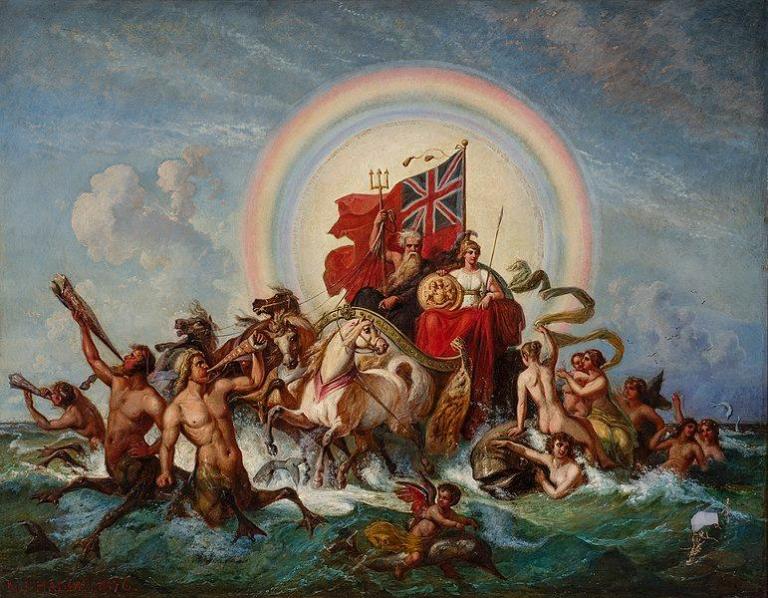In recent discussions about colonialism and its ongoing impacts, it’s helpful to recognize the nuanced way Jesus interacted with individuals who, by today’s standards, might be seen as representatives of colonial power.

This post explores the interactions between Jesus and those associated with the Roman Empire, such as soldiers, alongside the case of Cornelius in Acts. It illustrates that Jesus’ approach was one of redemptive love and transformation, not endorsement of their actions or status. Christ’s engagement with “colonialists” provides a model for how Christians today should relate to individuals implicated in systems of oppression, recognizing their humanity, potential for redemption, and the complexity of their circumstances.
Jesus and the Roman Centurion
One poignant example of Jesus’ interaction with a figure of colonial authority is found in the account of the Roman centurion in Matthew 8:5-13 and Luke 7:1-10. The centurion, a symbol of Roman military occupation and authority, approaches Jesus with humility and faith, seeking healing for his servant.
Notably, Jesus does not rebuke the centurion for his role within the Roman Empire but commends his faith. He even states that it surpasses that found in Israel. This interaction does not endorse colonialism. Instead, this account underscores Jesus’ recognition of the centurion’s humanity and faith.
Christ’s power to Christian identity transcends socio-political boundaries. It illustrates the principle that God’s grace and mercy extend even to those within oppressive systems, calling them toward a higher standard of love and service.
Colonialism and Cornelius in Acts
Acts 10 recounts the story of Cornelius, a Roman centurion described as devout and God-fearing. Cornelius’ encounter with Peter results from divine intervention and marks a pivotal moment in the early Christian church’s understanding of the gospel’s universal reach.
Peter’s vision and subsequent interaction with Cornelius demonstrate that the message of Christ transcends ethnic, cultural, and socio-political barriers. Cornelius, despite his association with the Roman military apparatus, is shown to be a man of faith and a recipient of the Holy Spirit.
This narrative reinforces the idea that individuals within colonial structures are not beyond the scope of God’s redemptive love and can be instrumental in God’s mission.
Jesus’ Universal Call
While Jesus engaged individuals associated with colonial power with love and compassion, he also called all people, regardless of their status, to repentance and transformation. His ministry did not shy away from challenging the unjust systems of his time, including those perpetuated by the Roman Empire.
However, Jesus’ method was to seek personal transformation leading to systemic change, rather than direct political confrontation. This approach is a model a way for contemporary Christians to engage with those involved in or benefiting from oppressive systems: love them as Jesus did, recognizing their potential for transformation and inclusion in the kingdom of God, without condoning injustice.
Do we actually believe the gospel has power?
Implications for Modern Christians
The way Jesus loved those associated with colonial power challenges Christians today to approach individuals complicit in systems of oppression with grace and truth.
Acknowledging the humanity and potential for redemption in everyone does not equate to an endorsement of oppressive actions or systems. Instead, it reflects an understanding that all have sinned and fall short of the glory of God (Romans 3:23) and that redemption and transformation are possible through Christ.
Christians are called to be agents of reconciliation, embodying Jesus’ love and compassion while also advocating for justice and systemic change. This dual commitment requires discernment, humility, and a willingness to engage in difficult conversations about power, privilege, and repentance.
By following Jesus’ example, Christians can navigate the complexities of engaging with those implicated in colonialism (or any other form of oppression). This approach exalts a gospel that liberates both the oppressed and the oppressor through the transformative power of love.
Jesus’ Redemptive Love in a Fractured World
Jesus’ ministry to people like the Roman centurion and Cornelius reveals that no one is beyond the reach of God’s grace, regardless of their socio-political position. Again, this does not imply an acceptance of colonialism or any type of oppression but acknowledges that those involved in such systems are complex individuals capable of redemption.
For contemporary Christians, Jesus’ example offers a way to navigate the challenging terrain of engaging with the legacies of colonialism and other oppressive structures. By embodying grace and truth, Christians affirm the humanity and potential for transformation in everyone.

















